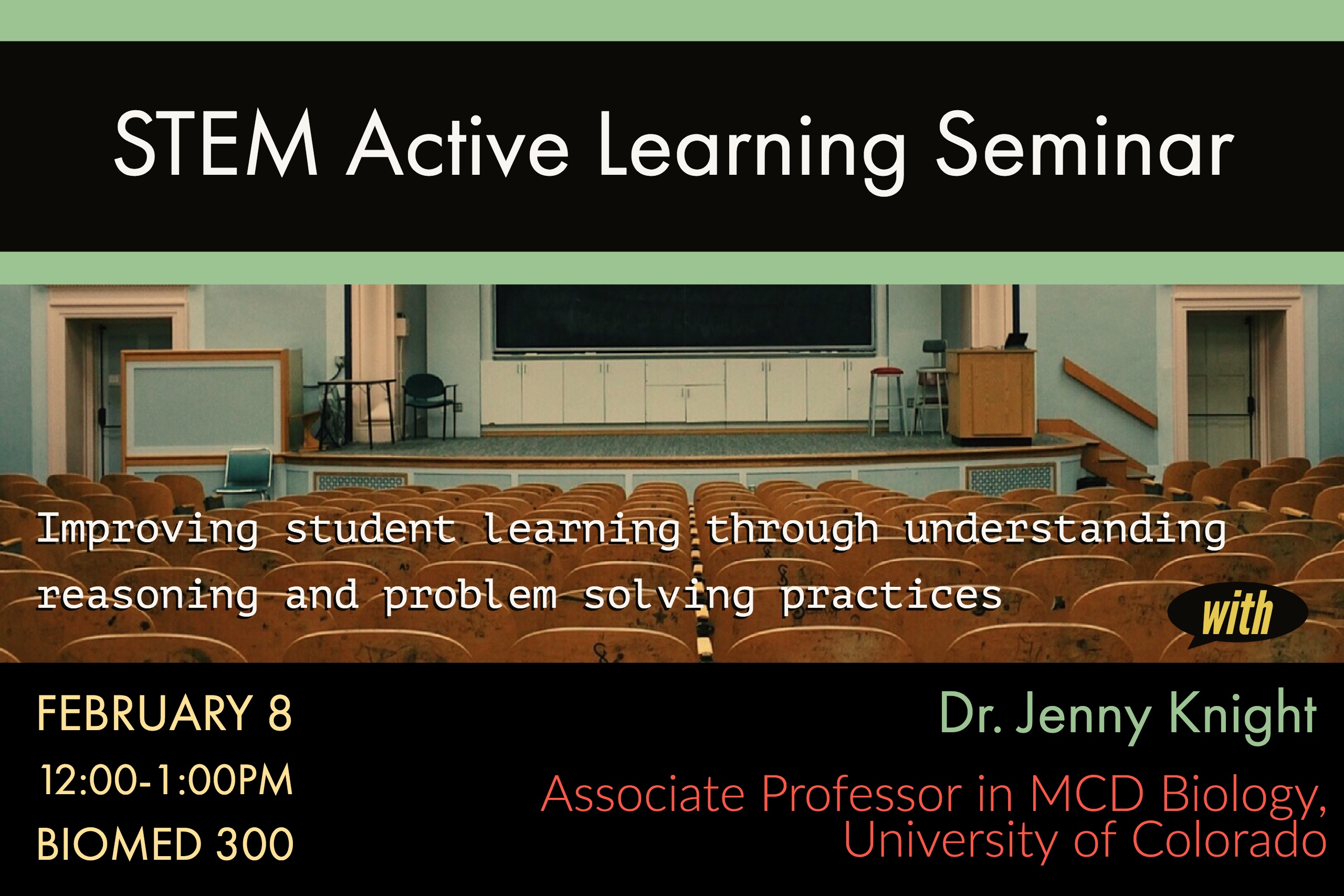Improving Student Learning Through Understanding Reasoning and Problem-Solving Practices
|
Speaker: Dr. Jenny Knight, PhD, Neuroscience Associate Professor in MCD Biology, University of Colorado Thursday, February 8th 2018 12:00-1:00pm, Location: Biomed room 300, UCSC Topic: Improving student learning through understanding reasoning and problem solving practices |
 |
Description: Classroom practices affect student behavior, and by extension, their learning. Through studying how students discuss clicker questions in active learning classrooms, we have found that students rarely use reasoning when answering in-class questions. However, their use of reasoning increases when they are cued to use reasoning by their instructors, by peer Learning Assistants, or when under pressure of accountability. Can students transfer in-class group practices to individual assessment opportunities that require reasoning and logic? To answer this, we are studying how students independently solve complex genetics problems through written documentation of their problem-solving processes. We analyze their answers for correctness, use of reasoning, and other cognitive and metacognitive processes. We have also collected data on whether giving students content “hints” improves their ability to solve similar problems, or changes their problem-solving process. Ideally, this work will lead to an understanding of how to better help students become life-long problem-solvers.
About Jenny:
I work in two main areas; course transformation and science education research. I have been using and encouraging others to use interactive techniques in biology courses for more than 4 years. In particular, I focus on the use of learning goals, group work, clickers, in class problem solving and "just in time teaching".
On the science education research side, I have worked with other fellows in the Science Education Initiative, Michelle Smith and Jia Shi, to design, validate and distribute pre-post content assessments in Introductory Biology and Genetics, as well as attitude assessment tools Biology CLASS. We have recently published the Genetics Concept Assessment and the Introductory Molecular and Cell Biology Assessment is in the works. We also work with other faculty in MCDB to design and carry out education research experiments in various classes in the department.
Most recently, I have been studying how non-majors and majors learn genetics. We have looked at both the rate at which students improve their conceptual understanding of topics, and whether the misconceptions that students have are the same regardless of whether they are majors or non majors. Non-majors have different attitudes about learning genetics, and report studying less. They also don't make as large a learning gain as do majors, although they still have a normalized learning gain of about 50%. Interestingly, the non majors and majors are quite similar in terms of the kinds of misconceptions they have. We are currently collecting additional data on the attitudes, motivations, and problem solving styles of these two populations of students.

